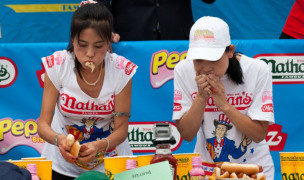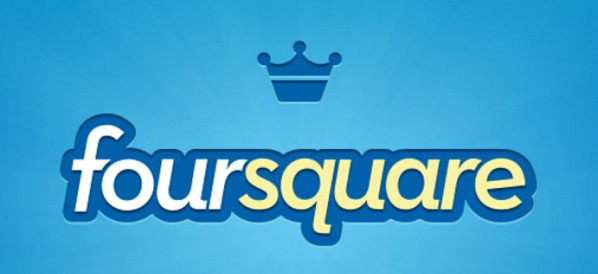 8 Terms
8 TermsHome > Terms > English (EN) > Chinese Americans
Chinese Americans
The largest and longest-established Asian American community Chinese numbers in America have also grown rapidly since 1965 through immigration from Taiwan, Hong Kong, overseas Chinese settlements and the People’s Republic of China. Chinese Americans have become a socalled “model minority” in terms of success in education, business and even sports. Yet, as political scandals and espionage accusations made clear in the 1990s, their “Americanness” was quickly called into question as a reflection of international relations as well as stereotypes of difference.
Like other immigrants in nineteenth-century America, Chinese American lives originally centered on involuntary ethnic enclaves (“Chinatowns”). Facing slurs, physical abuses and legal restrictions on immigration and citizenship, these ghettos became refuges for predominantly “bachelor” societies, where the male to female ratio reached 27:1 in 1890. Generally from Guangdong, in southern China, these Toisan/Cantonese laborers established complex “towns” with shops and living quarters.
Many associations flourished, replacing the traditional familial support left behind in China. The only non-Chinese in Chinatowns were missionaries and police; for outsiders, these enclaves epitomized urban mystery and danger.
As Chinese immigration developed, Chinatowns were also transformed. Secondgeneration Chinese Americans became citizens and formed new organizations, such as the Chinese American Citizen Alliance, to express their voices. China-towns declined in numbers and vitality in the 1930s, while adapting to American tourism and tastes.
Abolition of the Chinese Exclusion Act (1943), the establishment of the People’s Republic of China (1949) and the 1965 repeal of the 105 person quota imposed on China have all spurred growth of the Chinese American population in numbers and diversity Chinatowns still provide familiar surroundings for those with little knowledge of American culture. Many low-skilled workers find jobs in ethnic restaurants and sweatshops; with scant knowledge of their rights, they face exploitation by employers.
The importance of traditional groups has declined with integration and government social agencies like the Chinatown Planning Council in New York City, NY Some Chinatowns also face gang activities (imputed to Vietnamese or Fukienese immigrants), aging populations and clashes with other encroaching urban groups.
At the same time, Chinese communities have left the inner city for outlying places like Flushing (Queens, New York), Greater Los Angeles, CA or Sunbelt cities. These new suburban enclaves incorporate diverse Chinese in landscapes dotted with Asian malls and restaurants. Other Chinese immigrants and their children have adapted quickly to suburban dispersion and rapid assimilation through education and business, sometimes alarming other ethnic groups.
In politics, Chinese Americans have built slowly on the citizenship allowed them after the Second World War and their new numbers. While Democrat Michael Woo ran unsuccessfully for mayor of Los Angeles, and conservative Matt Fong was defeated in his bid for the governorship of California in 1998, Democrat Gary Locke was elected governor of Washington state that same year. Yet the actions of Chinese outside of the US—a tense area of foreign policy—have had an impact on political citizenship. Under Clinton, fundraising scandals connected with the People’s Republic and Taiwan tarred the civic image of American Chinese. China’s access to American nuclear secrets, examined in the 1999 Cox report, seemed to question the actions and connections of all Chinese Americans.
The public face of Chinese as Americans suffers from decades of orientalization, from D.W. Griffith’s 1919 Broken Blossoms to the 1960s Broadway musical/film Flower Drum Song. Since the 1960s, Chinese American film-makers, dramatists, novelists and academics have tackled these stereotypes in works by Wayne Wang, Frank Chin, Maxine Hong Kingston, Amy Tan and Gish Jen. Such authors explore the complexities of Chinese American history and intertwine them with other American ethnicities.
- Part of Speech: noun
- Synonym(s):
- Blossary:
- Industry/Domain: Culture
- Category: American culture
- Company: Routledge
- Product:
- Acronym-Abbreviation:
Other Languages:
Member comments
Terms in the News
Billy Morgan
Sports; Snowboarding
The British snowboarder Billy Morgan has landed the sport’s first ever 1800 quadruple cork. The rider, who represented Great Britain in the 2014 Winter Olympics in Sochi, was in Livigno, Italy, when he achieved the man-oeuvre. It involves flipping four times, while body also spins with five complete rotations on a sideways or downward-facing axis. The trick ...
Marzieh Afkham
Broadcasting & receiving; News
Marzieh Afkham, who is the country’s first foreign ministry spokeswoman, will head a mission in east Asia, the state news agency reported. It is not clear to which country she will be posted as her appointment has yet to be announced officially. Afkham will only be the second female ambassador Iran has had. Under the last shah’s rule, Mehrangiz Dolatshahi, a ...
Weekly Packet
Language; Online services; Slang; Internet
Weekly Packet or "Paquete Semanal" as it is known in Cuba is a term used by Cubans to describe the information that is gathered from the internet outside of Cuba and saved onto hard drives to be transported into Cuba itself. Weekly Packets are then sold to Cuban's without internet access, allowing them to obtain information just days - and sometimes hours - after it ...
Asian Infrastructure Investment Bank (AIIB)
Banking; Investment banking
The Asian Infrastructure Investment Bank (AIIB) is an international financial institution established to address the need in Asia for infrastructure development. According to the Asian Development Bank, Asia needs $800 billion each year for roads, ports, power plants or other infrastructure projects before 2020. Originally proposed by China in 2013, a signing ...
Spartan
Online services; Internet
Spartan is the codename given to the new Microsoft Windows 10 browser that will replace Microsoft Windows Internet Explorer. The new browser will be built from the ground up and disregard any code from the IE platform. It has a new rendering engine that is built to be compatible with how the web is written today. The name Spartan is named after the ...
Featured Terms
Foursquare
Foursquare is a location-based social networking website for mobile devices, such as smartphones. Users "check in" at venues using a ...
Contributor
Featured blossaries
Marouane937
0
Terms
58
Blossaries
3
Followers
8 of the Most Extreme Competitions On Earth
 8 Terms
8 Terms
Browers Terms By Category
- Inorganic pigments(45)
- Inorganic salts(2)
- Phosphates(1)
- Oxides(1)
- Inorganic acids(1)
Inorganic chemicals(50) Terms
- Meteorology(9063)
- General weather(899)
- Atmospheric chemistry(558)
- Wind(46)
- Clouds(40)
- Storms(37)
Weather(10671) Terms
- General seafood(50)
- Shellfish(1)
Seafood(51) Terms
- Architecture(556)
- Interior design(194)
- Graphic design(194)
- Landscape design(94)
- Industrial design(20)
- Application design(17)



